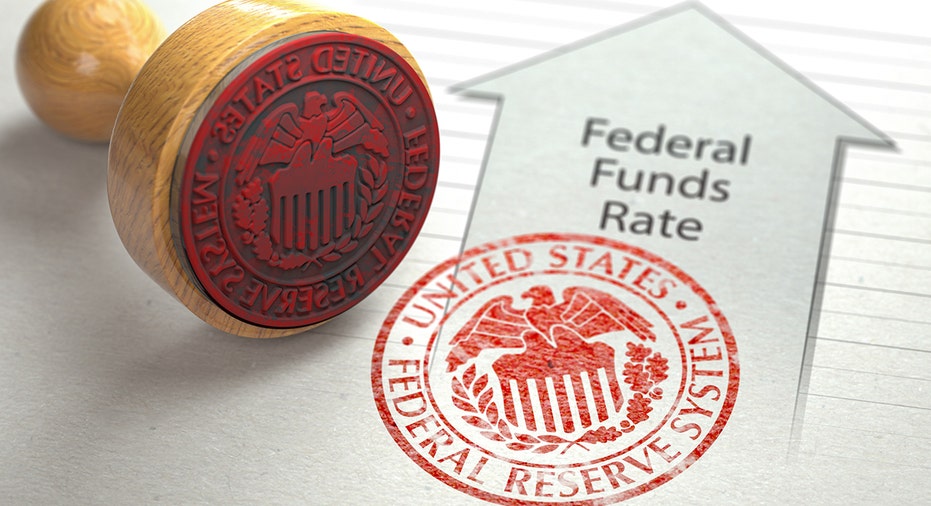
The time to act is now for homeowners looking to refinance their home loan into a lower interest rate. That’s because the money markets are betting on an increase in interest rates this year. That is, they are now pricing a 100% chance that the Federal Reserve will increase the federal funds rate by December 2022.
How does the federal funds rate affect interest rates?
The federal funds rate does not control mortgage interest rates as directly as it affects other things like savings accounts and CD rates. The Federal Reserve controls short-term rates.
Today, those rates are currently set at a range of 0% to 0.25%. When the Fed lowers the federal funds rate, worried investors flock to the 10-year Treasury, which does control mortgage interest rates and therefore driving rates down. A rate hike on the federal funds rate has the opposite effect and works indirectly to drive mortgage rates up. First-time homebuyers and current homeowners considering a home purchase or mortgage refinance should explore their options now before interest rates rise and view prequalified rates on the Credible marketplace.
The federal funds rate has this same indirect effect on other loan products such as personal loans and student loans. Visit Credible to view a rates table to compare fixed and variable interest rates for student loans from multiple lenders at once.
When the COVID-19 pandemic hit, the Fed lowered mortgage interest rates in order to stimulate the economy as it entered into a recession, and refinance rates dropped. Homeowners and many first-time homebuyers took advantage of the low mortgage rates. As a result, mortgage and mortgage refinance activity increased through products such as home equity loans and other loan types. Now experts are debating when the next rate hike will come as the Fed says it is waiting on consistently higher levels of inflation.
One member of the Federal Reserve, Dallas Fed President Robert Kaplan, told CNBC that an interest rate hike could come as soon as 2022.
To take advantage of today’s low mortgage interest rates and refinance your mortgage, check out an online marketplace like Credible to compare rates from various mortgage lenders.
When will interest rates increase?
Loan rates have been hovering at or near record lows through 2020 and even into this year. Economists had previously predicted interest rates would continue rising in 2020 after a series of rate hikes during the previous years.
But that’s not at all what happened. Once COVID-19 hit, the Fed quickly brought the federal funds rate back down and interest rates hit all-new lows, spurring a surge in mortgage and refinance activity. The latest report from Black Knight, a mortgage technology and data provider, showed the share of mortgage refinance activity dropped to 45% of all home loans. But the data also showed about 14.5 million homeowners would still likely qualify and benefit from a mortgage refinance due to continued low refinance rates.
“Rates are still hovering in a historically comfortable place, with approximately 14.5 million homeowners who could still likely qualify for and benefit from a refinance,” Scott Happ, Black Knight secondary marketing technologies president, said in the report. “It will be interesting – and telling – to see both how rates move in the coming weeks, and whether or not we see refi volumes increase as a result.
Minutes from the Federal Open Markets Committee’s April meeting revealed the Fed is considering phasing out its bond buying as the economy improves. This alone could trigger a rates move as Treasury yields, which direct mortgage interest rates, increased shortly after this news was announced.
While talk of raising rates is increasing, Federal Reserve Chair Jerome Powell said in a recent interview with “60 Minutes” that a rate hike this year is “highly unlikely.”
But this stance isn’t without criticism. Treasury Secretary Janet Yellen, the former Federal Reserve Chair under the Obama and Trump administrations, said earlier this month at the Atlantic’s Future Economy Summit that rates might need to see an increase as the economy recovers. Yellen later clarified that she was not seeking to influence the Fed’s decision-making.
While there are several opinions on when to raise rates and by how much, forecasts from voting members of the Fed show it is not likely to raise the federal funds rate until 2022, at the earliest.
But mortgage interest rates could still continue to increase slightly as the economic recovery continues. To take advantage of today’s low refinance rates, visit Credible to compare rates across multiple mortgage lenders.
Rate increase is a matter of time
Economists agree interest rates will soon begin to increase for mortgages, personal loans, student loans and other loan products. While the Federal Reserve may continue to linger before raising rates to ensure economic growth continues, that may not prevent mortgage interest rates from slowly ticking up.
Visit Credible to get in touch with experienced loan officers and get their mortgage questions answered.